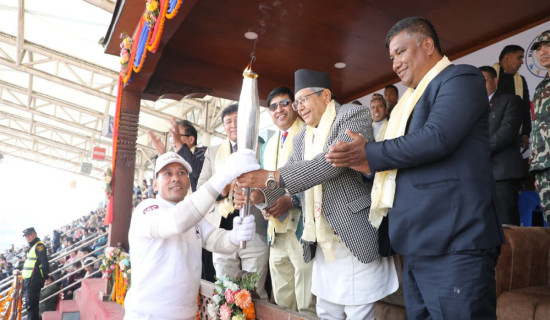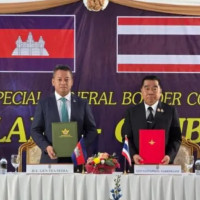- Sunday, 28 December 2025
Violence in Bangladesh stirs fear within the country's Hindu minority
Bangladesh, Aug 14: When a mass uprising forced Bangladesh's longtime prime minister to step down and flee the country last week, a 65-year-old retired auditor who had worked for her political party feared for his life.
Arobinda Mohalder, who is part of Bangladesh's Hindu minority, had just learned that a Hindu official working for the Awami League party in the country's Khulna district escaped after an angry mob set his home on fire.
Mohalder and his wife quickly packed clothes and passports as they fled their home to stay with a relative nearby. Later that evening, they found out their home had been torched. The attackers looted everything, including their television, refrigerator and two air conditioners.
Ever since former Prime Minister Sheikh Hasina resigned and fled to India, her supporters and associates have faced retaliatory attacks by mobs who have been met by little, if any, resistance from authorities. Members of the country's Hindu minority feel the most vulnerable because they have traditionally backed the Awami League — seen as a secular party in the Muslim-majority nation — and because of a history of violence against them during previous upheavals.
In the week since Hasina was ousted on Aug. 5, there have been at least 200 attacks against Hindus and other religious minorities across 52 districts, according to the Bangladesh Hindu Buddhist Christian Unity Council, a minority rights group that has been tracking incidents.
But experts caution it is hard to establish the extent of and motivations for the violence in this South Asian country of 170 million.
"There may be an element of minorities, particularly Hindus, being targeted due to their faith. But many Hindus had links to the Awami League, because historically it has been the party that protected minorities, so they may have been targeted for their political affiliations," said Thomas Kean, a senior consultant on Bangladesh and Myanmar at the Crisis Group.
Hasina's ouster was triggered by student-led protests against a quota system for government jobs. After clashes between protesters and government forces that led to hundreds of deaths, the movement grew into a broader rebellion against the leader and her government.
Mobs rampaged across the country after Hasina fled. Some of the violence was just criminal activity, Kean said, and "we shouldn't assume they are all due to race or religion."
The interim government put in place after Hasina's ouster has condemned the attacks as "heinous" and said it was working with community leaders to ensure Hindus' safety.
Hindus, who make up 8% of the population and are the largest minority group, "are shivering," said Kajal Debnath, a vice president of the Bangladesh Hindu Buddhist Christian Unity Council. "They are closing their doors, they are not opening it without confirming who is knocking. Everybody (in the Hindu minority)… from the Dhaka capital to the remote villages are very scared."
For many, the violence has evoked painful memories of Bangladesh's 1971 war of independence against Pakistan during which Hindus were targeted. Hindus were also attacked during the rise of Islamic groups in the 1990s, which Hasina stamped out.
Hindus have held large protests in the past week drawing thousands, demanding protection and condemning the recent spate of attacks.
Munni Ghosh, a Hindu housewife in Dhaka, said that attacks have grown since Hasina fled. "The reason (is) because she used to support us," she said. (AP)















